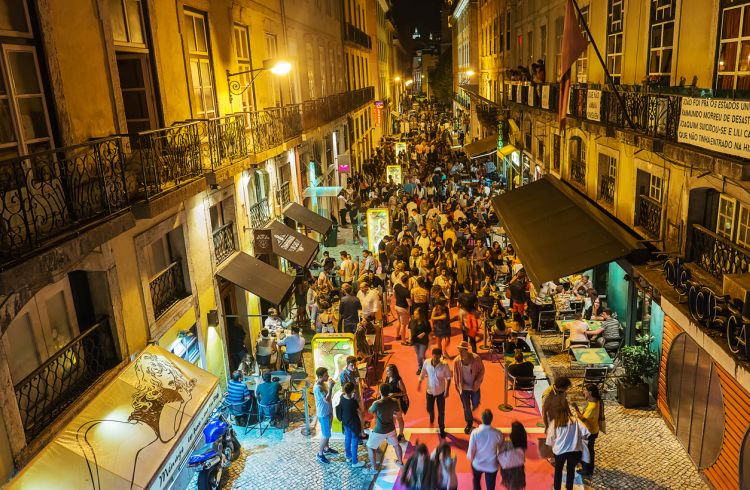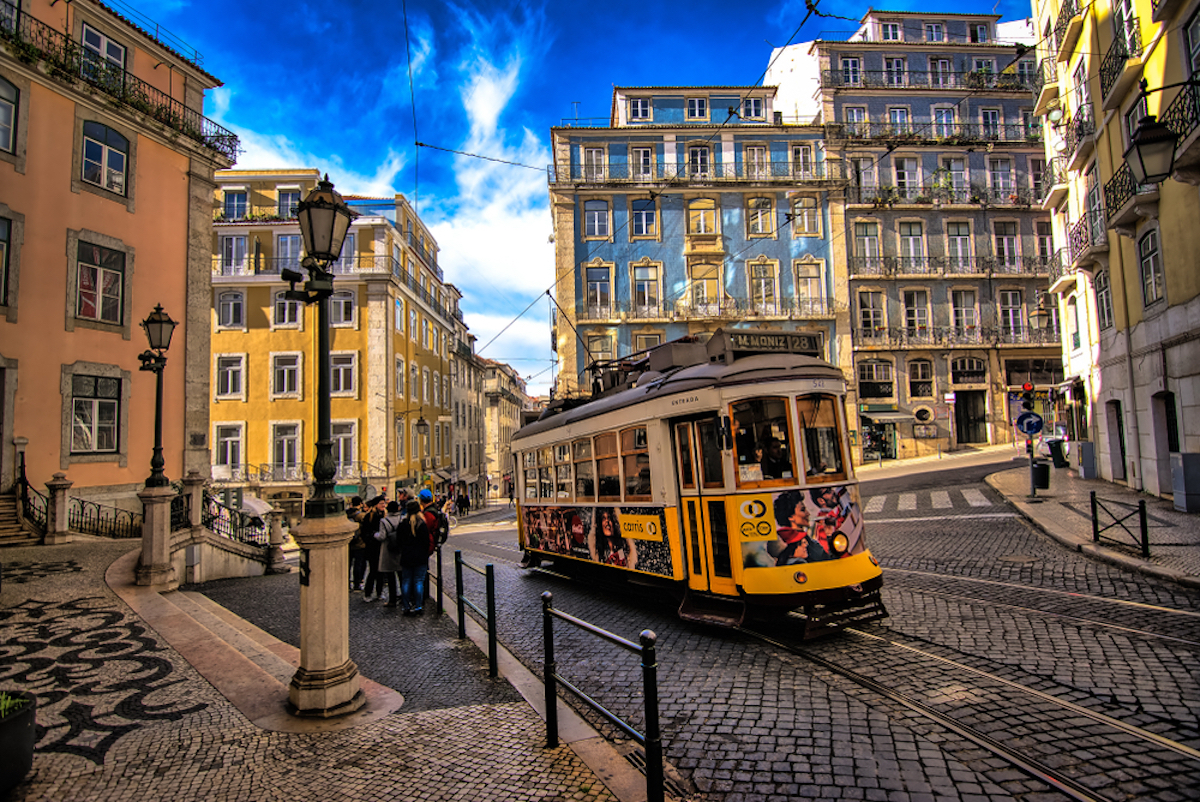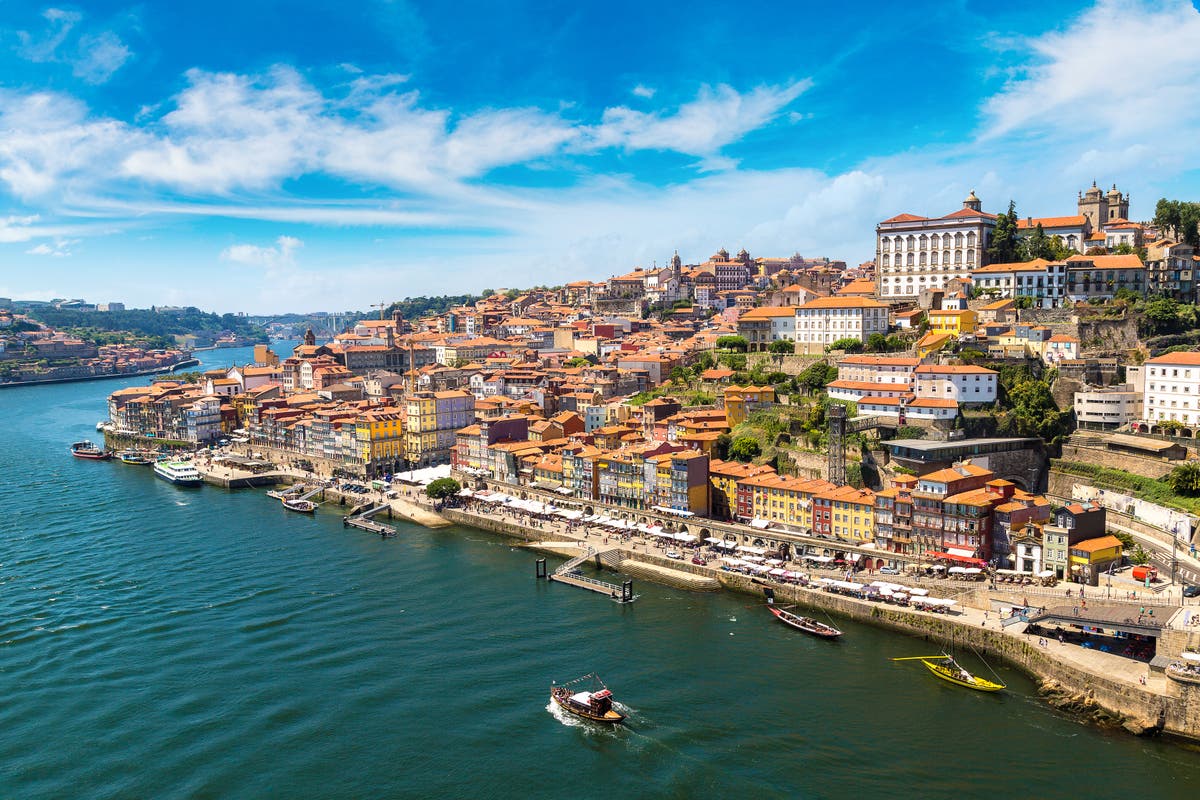Portugal is one the safest places to travel in Europe. But that doesn’t mean you should completely let your guard down. Find out how to travel safely with these tips.

Portugal is by far one of Europe’s most popular travel destinations. From beautiful architecture to breathtaking beaches and islands, great food and exciting nightlife, you’ll never want to leave. Although Portugal is a safe country, there are a few things travelers should keep in mind.
From scams to petty c.r.i.m.e, here are our top tips to avoiding trouble in Portugal.
Portugal’s low c.r.i.m.e rate

In the 2020 Global Peace Index, Portugal is third out of 163 countries when it comes to overall safety. In Europe, Portugal comes second out of 36 countries, sitting right behind Iceland.
Portugal boasts one of the world’s lowest c.r.i.m.e rates, with violent crime a relatively rare occurrence and typically isolated to certain bad areas.
However, non-violent crime is an ongoing problem, particularly in the capital city of Lisbon. Petty thieves are known to frequent areas where visitors can be found, looking to steal anything of value, from cash to passports to jewelry.
Here are some of the things to watch for and some tips to help you avoid becoming a victim.
Pickpocketing in Portugal
One of the most frequently reported c.r.i.m.e.s in Portugal is pickpocketing. Pickpockets often work in teams (sometimes using young children as a distraction) so it’s important to always be aware of your surroundings.
Public transportation, airports, and hotel lobbies are prime locations for this petty crime because they are very crowded and usually full of tourists.
One place in particular where pickpockets seem to be quite active is aboard Tram 28, a popular tourist attraction that brings visitors to the famed Castle of São Jorge. Its frequent stops and crowded environment make it a perfect location for thieves to target their victims so if you’re hitching a ride be sure to keep your valuables well concealed.
Bag snatching
Women who carry bags should be aware that if they leave them in plain sight, chances are a thief is interested. This is particularly true at restaurants, where women may hang their bags over the backs of their chairs or place them on the floor, leaving them vulnerable to crooks.
Bags should always be in sight, preferably on your lap or with the strap wrapped around either your leg or arm.
When walking, always hold your bag in front of you with a firm grip. Luggage is also a prime target for petty thieves, especially when left unattended in hotel lobbies or at the airport, so be aware.
Car theft in Portugal
Parked cars left unlocked or with the windows down are easy targets, especially in lots that are close to tourist attractions and near restaurants.
If you hire a vehicle, make sure it doesn’t have stickers identifying it as a rental car. Keep your car doors locked at all times, whether you are moving or not.
Areas where visitors should be particularly cautious include the Moorish Castle and Pena Palace in Sintra, and at the beachfront areas of Guincho, Cabo da Roca and Boca do Inferno.
Don’t be scammed
C.r.i.m.i.n.a.l.s in Portugal have been known to target tourists with various scams so visitors should be wary of anyone approaching them on the street attempting to sell them something.
One popular scam involves the sale of discounted tickets to area attractions, such as the Torre de Belem, which are not valid. Remember the old adage, if it seems too good to be true, it probably is.
Some restaurants charge exorbitant prices for dishes that would normally be cheap or fairly priced. The prospective diners see the menu outside the restaurant showing reasonable prices and decide to dine there. A waiter will come along to attend to the diners, mentioning the daily specials and emphasizing how good they are and why. Diners choose the specials only to find out later how expensive the specials are when presented with the bill. When querying the bill, the diners are presented with a different menu showing the prices which they didn’t see before.
Authorities generally can’t do much about these overcharging restaurants but social media plays a vital role in naming and shaming the restaurants. So check reviews on Google or TripAdvisor before dining.
There are reports that accommodation scams are on the rise in Portugal. Always book your accommodation through reputable vendors who use secure payment facilities and websites.
C.r.i.m.e hot spots in Portugal
Some areas to be cautious in include the Alfama and Bairro Alto districts, the Castle of São Jorge and train stations including the Rossio, Oriente and Santa Apolonia.
Lisbon tends to have more crime than the rest of Portugal, particularly in the Belem neighborhood.
Outside Lisbon, the towns of Mafra, Fatima, Sintra, and Cascais have their share of thefts and scams, as does the Algarve.
In Madeira, petty c.r.i.m.e.s occur in the popular Old Town and Santa Catarina Park areas of Funchal, although it’s rather infrequent.
Is Lisbon safe?

C.r.i.m.e rates are low in Portugal, but like most cities, there is opportunist c.r.i.m.e. Pickpocketing, bag snatching and theft on public transport and at transport hubs are not uncommon and the usual precautions should be taken (see below). Popular tram routes 15 and 28 can be prone to thefts. Be wary of leaving your drink unattended in bars or clubs because of the possible use of date rape drugs, drink responsibly and stay with friends when on nights out. Protecting tourists is a priority and there is a good police presence., but dodgy areas to avoid include Casal Ventoso, and Sintra, Mafra and Cascais in Greater Lisbon.
Tips to avoid petty c.r.i.m.e
Some ways to avoid being a victim of a petty crime are obvious – don’t carry a lot of cash, keep valuables well concealed and stay alert. But there are a few other suggestions that will help you enjoy a safe, c.r.i.m.e-free trip to Portugal:
Invest in a money belt and wear it in the front, under your clothing
If you use a shoulder bag, choose one with a sturdy strap (preferably metal-lined), and wear it across your chest
Carry backpacks on your chest rather than your back and keep zippers securely locked
Never carry more money than you need for the day
While sitting in a restaurant, keep purses and bags on your lap. If this is not possible, keep them in your sight and firmly wrap the straps around either your arm or your leg. And always keep them zipped. Never leave a wallet sitting on your table. Gives thieves an easy snatch and grab the opportunity
Avoid wearing visible jewelry
Prior to traveling, make copies of all important documents (passport, ID, visa) and store the copies in a secure place. Keep originals on you, stored securely in your money belt
If you need to check your guidebook or map, try to do so while sitting in a restaurant or cafe. If this is not possible, lean against a nearby wall while you consult your paperwork.
LGBTQ+ safety in Portugal

Same-s.e.x marriage was legalized in Portugal in 2010, and in urban areas LGBTQ+ communities are accepted. However, outside of larger cities, attitudes may be further behind in what is a conservative Catholic country. Lisbon has a thriving LGBTQ+ scene, and annual Pride marches are held in Lisbon and Porto. However, discretion is advised further afield.
By: www.worldnomads.com
